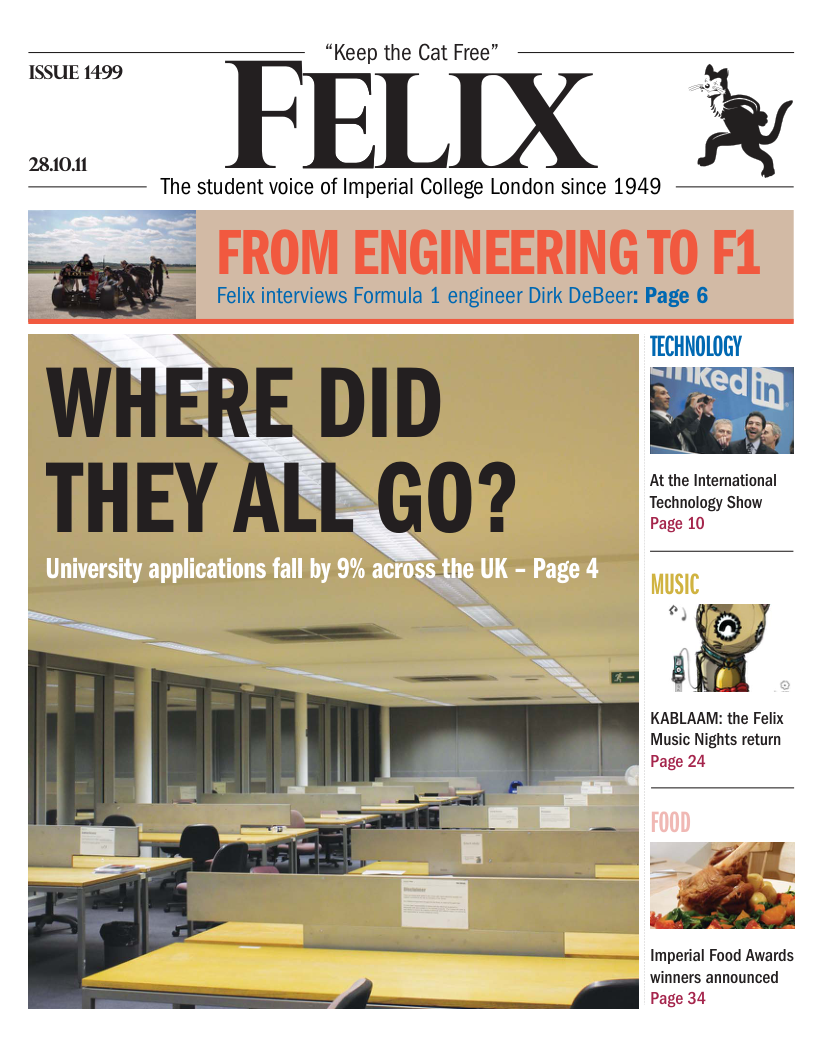The Life Scientific
Arianna Sorba reviews the new scientifically slanted Radio 4 series
‘The Life Scientific’ is a new radio series currently being broadcast on BBC Radio 4. Each week Jim Al-Khalili, physicist and science communicator, interviews a different leading scientist, asking about their work, their life, and what motivates and inspires them.
The first scientist in the hot-seat was Paul Nurse, a Nobel Prize-winning geneticist and current President of the Royal Society. Nurse has had a rather extraordinary life for a scientist, from his initial failure to gain a place at university, to his revelation only a few years ago that his sister was in fact his mother, and Al-Khalili adeptly makes use of these events in the interview. However, it’s the detail with which Nurse describes his own research, including a rather poignant story of him completely botching his third year degree project because of the thermostat in the water bath, where I think the show comes into its own. For Nurse, and Al-Khalili too in fact, for once don’t seem frightened at the prospect of the show becoming, too scientific, too technical, too niche, and instead talk in real terms about things that are actually interesting. To some of us, anyway.
Next up was Steven Pinker, a science writer and Professor of Psychology at Harvard University. Here, Al-Khalili takes the listener similarly deeply into his interviewee’s area of research, and this time the show benefits from it even more. Together they discuss matters as important and controversial as human capacity for violence, and the meaning of life without a ‘soul’, and Pinker is characteristically unafraid to say what he thinks. Yet despite even being played audio footage of a rival openly criticising him, as well as Al-Khalili’s own gently probing questions, Pinker remains unprovoked, and this lack of tension makes for a much better interview.
Pinker also comes across as genuinely passionate about the fundamental concepts of science. He’s keen to emphasize the importance of a good experiment, and of removing the bias that society inevitably stamps on any results, and he’s obviously inherently a scientific thinker. Often he discusses aspects of his work, or science in general, unprovoked by Al-Khalili, and it’s refreshing to hear someone talk so eloquently and warmly about ideas that few people outside the scientific community recognise as important.
There are more great names on the way for the series, including astronomer Jocelyn Bell-Burnell, who discovered pulsars yet famously didn’t win the Nobel Prize, and Michael Marmot, a doctor who conducted some ground-breaking research on the relationship between life expectancy and social status. So why not have a listen? BBC Radio 4, 9am on Tuesdays, and you can iPlayer the previous ones too. Great stuff to knit to, if you’re so inclined...








